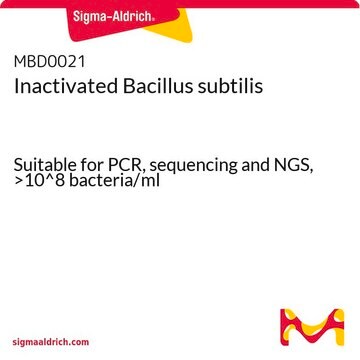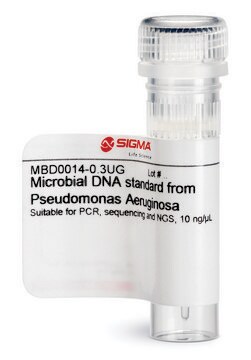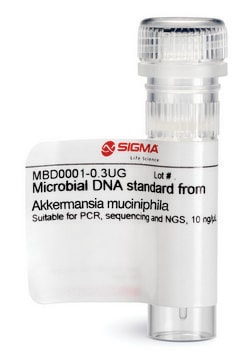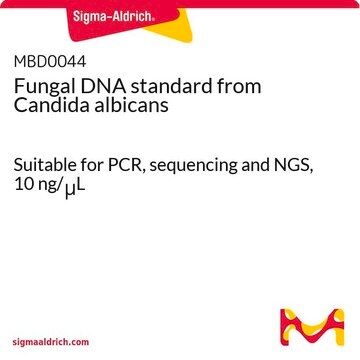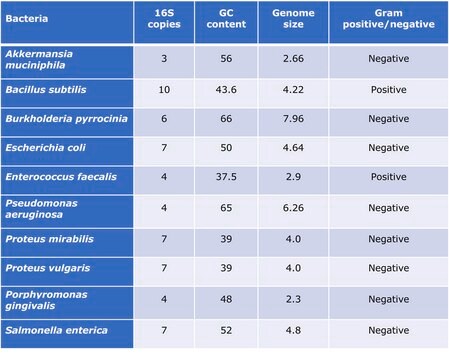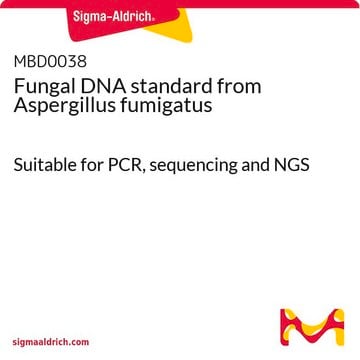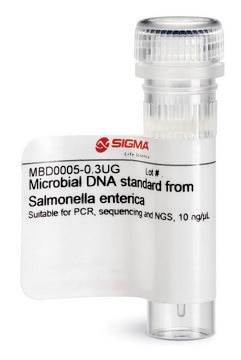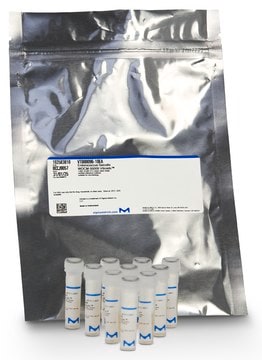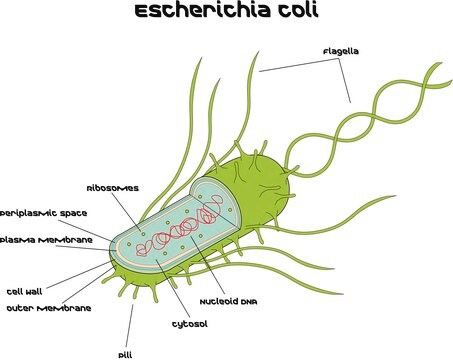MBD0018
Microbial DNA standard from Bacillus subtilis
Suitable for PCR, Sequencing and NGS, 10 ng/μL
Sign Into View Organizational & Contract Pricing
All Photos(2)
About This Item
UNSPSC Code:
41105500
NACRES:
NA.24
Recommended Products
Quality Level
form
liquid
concentration
10 ng/μL
technique(s)
DNA extraction: suitable
DNA sequencing: suitable
PCR: suitable
shipped in
ambient
storage temp.
−20°C
General description
Microbial DNA standard from Bacillus subtilis (B. subtilis) is a genomic DNA microbial standard that can serve as a standard for benchmarking the performance, along the workflow of microbiomics or meta-genomics analyses. It can also be used as a tool to increase reproducibility and allow comparison of results obtained by different labs. Standardization of sample analysis is currently needed in microbiome genomics research workflow. Lack of standardization can lead to biases and errors in common processes during sample preparation and analysis such as sample amplification, sequencing and bioinformatics analyses. Bacillus subtilis is a gram positive, aerobic bacterium, rod-shaped, endospore-forming, catalase-positive. It is traditionally considered as a soil microorganism. Bacillus subtilis is genetically well characterized and serves as a model organism for important gram-positive pathogens such as Bacillus anthracis, Staphylococcus aureus etc. B. subtilis possess an extreme adaptation ability to various environmental stress conditions by modifying its motility, uptake of exogenous DNA, biofilm formation and sporulation. Recent studies have identified and characterized B. subtilis isolates from human gastrointestinal track suggesting B. subtilis as a gut commensal. Moreover, B. subtilis presence in the gut was found to correlate with probiotic effects such as anti-diarrhea effect, anti-microbial effect, immune-stimulatory effect, competition with pathogens, normal flora growth stimulation and prevention of intestinal inflammation. B. subtilis beneficial effect on gut inflammation may also suggest it as potential probiotic treatment for inflammatory bowel diseases (IBD), including Crohn′s and ulcerative colitis. In addition, it was demonstrated that a peptide produced by B. subtilis possess antiviral effect against influenza virus.
Read here how to use our standards to ensure data integrity for your microbiome research.
Read here how to use our standards to ensure data integrity for your microbiome research.
Application
Suitable for Quantitative standard for PCR, Sequencing and NGS
Features and Benefits
- Individual microbial standard for microbiomics and meta-genomics workflow
- Suitable standard for PCR, sequencing and NGS
- Improve Bioinformatics analyses
- Increases reproducibility
- Compare results lab to lab
Physical form
Liquid - The genomic DNA is provided at >=10 ng/μL concentration in TE buffer pH 8.0
Other Notes
It is recommended to avoid freeze thaw cycles of this product.
Storage Class Code
12 - Non Combustible Liquids
WGK
WGK 1
Flash Point(F)
Not applicable
Flash Point(C)
Not applicable
Certificates of Analysis (COA)
Search for Certificates of Analysis (COA) by entering the products Lot/Batch Number. Lot and Batch Numbers can be found on a product’s label following the words ‘Lot’ or ‘Batch’.
Already Own This Product?
Find documentation for the products that you have recently purchased in the Document Library.
Customers Also Viewed
Amelioration of the DSS-induced colitis in mice by pretreatment with 4, 4'-diaponeurosporene-producing Bacillus subtilis
Jing Y, et al.
Experimental and Therapeutic Medicine, 14(6), 6069-6073 (2017)
Subti wiki-a database for the model organism Bacillus subtilis that links pathway, interaction and expression information
Michna RH, et al.
Nucleic Acids Research, 42, D692-D698 (2013)
Bacillus subtilis?The Representative of Gram-Positive Bacteria
The Flagellar World, 22-23 (2014)
Articles
DNA standards enhance metagenomics research integrity, offering precise species study and mixed community standards.
Our team of scientists has experience in all areas of research including Life Science, Material Science, Chemical Synthesis, Chromatography, Analytical and many others.
Contact Technical Service